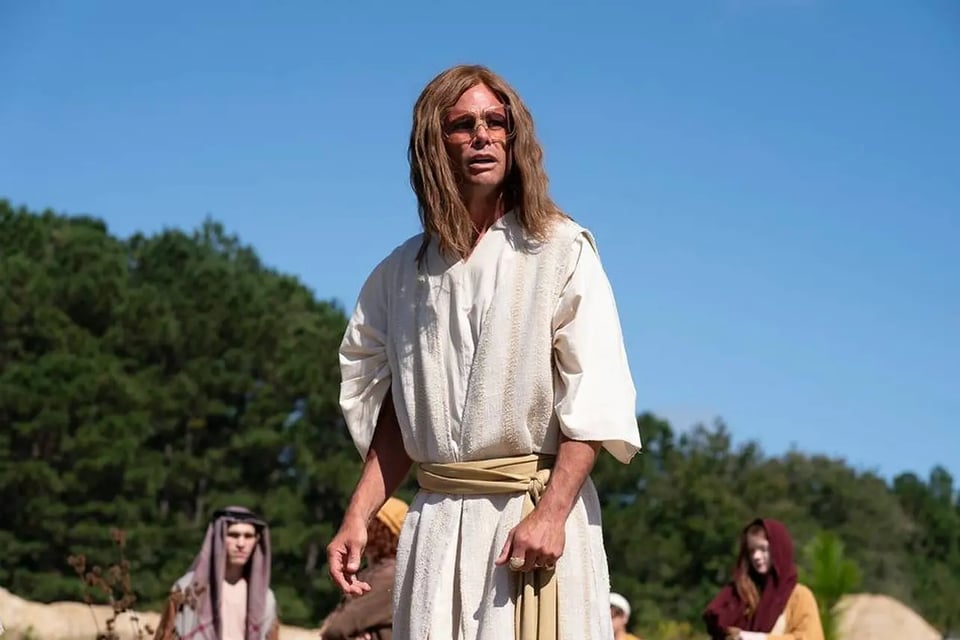Bidding Farewell to 'The Righteous Gemstones'
No one threads the needle between high and low-brow comedy as deftly as Danny McBride. With the conclusion of his third series with HBO under the production of Rough House Pictures, he, Jody Hill, and David Gordon Green have proven themselves to be the most reliably high-quality comedic television dynasty of the twenty-first century. On the surface, characters like Kenny Powers and Jesse Gemstone appear to appeal to the lowest common denominator. However, a few episodes deep into Eastbound and Down, it’s clear that McBride and his collaborators are working with a deceptively sophisticated brush. By the time these North Carolinian natives had reached the budgetary and creative freedom granted for a show like The Righteous Gemstones, that skillset only grew sharper and wittier. After a respectable four-season run full of bombastic performances and outfits, a wealth of inimitable turns of phrase, and a rich tapestry of Dynasty-worthy familial drama, I’m thrilled to see whatever projects they undertake next. [Spoilers for the fourth and final season of The Righteous Gemstones follow.]
Out of all the bold directions that The Righteous Gemstones takes, perhaps none is more praiseworthy than the epic Civil War-era season four opener, “Prelude.” Guest-starring Bradley Cooper as the murderous scoundrel-turned-preacher Elijah Gemstone, the episode showcases the peak of the remarkable tonal shifts at which the show excels. Apart from choice dialogue full of McBride-isms here and there (“I've been praying this whole time. Silently. In my mind”), “Prelude” could easily pass as a pilot for a high-budget prestige period drama. Among all the impressive, bleak, bloody carnage, however, Elijah delivers a sermon that acts as a through line for the entire series. He may have killed a man and stolen his robes to scam his way out of combat, but he finds himself in a unique position to comfort those facing death. Bluffing his way through his words, there's also a sense of care, sincerity, and dimensionality underneath that makes the entire show compelling beyond its role as a satire of evangelical grifters.

One admirable way this heartfelt character development reverberates is through the relationship between former Satanist Keefe Chambers (Tony Cavalero) and youth pastor Kelvin Gemstone (Adam DeVine). Throughout the first two seasons, any references to their sexuality exist only through homoerotic jokes aimed at Kelvin's naivete, especially surrounding his shirtless, muscle-bound “God Squad.” However, all ambiguity vanishes after Kelvin and Keefe’s triumphant onscreen kiss at the end of season 3. That moment paves the way for a beautifully defiant monologue pending Kelvin’s nomination for a Top Christ Following Man of the Year Award: “I spent my whole life trying not to be until I realized God sees the real me. In fact, He made the real me. And if the real me is good enough for God, then it’s good enough for everyone.” For such a usually raunchy, irreverent comedy to embrace and foreground Kelvin’s gay pride without a hint of irony after almost three entire seasons in the closet demonstrates the admirable maturation the show has undergone.
That’s not to say this season pulls its comedic punches, either. Determined to top themselves after Baby Billy’s Health Elixir (“No more Covids!”) and Baby Billy’s Bible Bonkers (never getting any less hilarious to hear in Walton Goggins’s dentured Southern mumble), McBride and his writing team deliver another magnum opus for the geriatric fortune seeker: a series based on the teenage life of Jesus Christ, dubbed “Teenjus” after snorting an inspirational line of cocaine. Every scene focusing on this plotline knocks the previous one out of the water, from that initial lightning strike, to Uncle Baby Billy asking the Gemstone siblings for funding (“Come on, I ain’t asking for the world here. I’m just asking for an eight ball and two million dollars!”), to his dissatisfaction with the lead actor’s performance, donning a wig and portraying the titular character himself (while keeping his signature Gucci sunglasses and copious flashy rings), to performing a gloriously over-the-top disco/rap dance battle. The conclusion of this scene from the first season remains the hardest I’ve ever laughed at any television show, but Baby Billy’s "Teenjus" arc often came very close. An alumnus of McBride’s previous show, Vice Principals, Goggins further cements his formidable comedic chops in a role that will be dearly missed. His delivery of “God bless this cocaine to give me the gas to beat this demon” alone should render Uncle Baby Billy immortal.

Likewise, there'll be an entire Gemstone family-shaped hole in the years to come. Edi Patterson, McBride, and Devine create this beautiful synergy as the spoiled, ambitious, often stupid Gemstone sibling trio at the show’s center, whether their exploits pit them against one another or unite them against a common enemy. Only this show could wring gut-busting hilarity from the immediate aftermath of a chilling, pitch black scene of its three protagonists seemingly getting shot to death. Dragging their legs, leaving bloody trails behind them, and making the most pathetic gasping noises, this floorbound ensemble performance represents a culmination of four seasons of unconquerable kinship in the face of certain peril.
For all of The Righteous Gemstones’s riffing on American evangelism and the greed that plagues it, the show holds enormous respect for the Christian folk of South Carolina, for all their flaws and virtues. To quote Jesse’s prayer for Corey Milsap, the man who shot them, as he lay dying, “We are imperfect beings trying to become something more.” It marks a poignant bookend to Elijah’s sermon to a Confederate troop before their execution by firing squad at the beginning of the season: “Maybe the rest of us sinners need to stick around a bit before we can join them in Your everlasting glory.” The characters that McBride and his collaborators have created deserve scorn and ridicule, but they’re also undeniably human. No matter how nastily they act towards each other and to those who threaten their enormous wealth, it’s impossible not to root for them. [All seasons of The Righteous Gemstones are currently streaming on Max.]